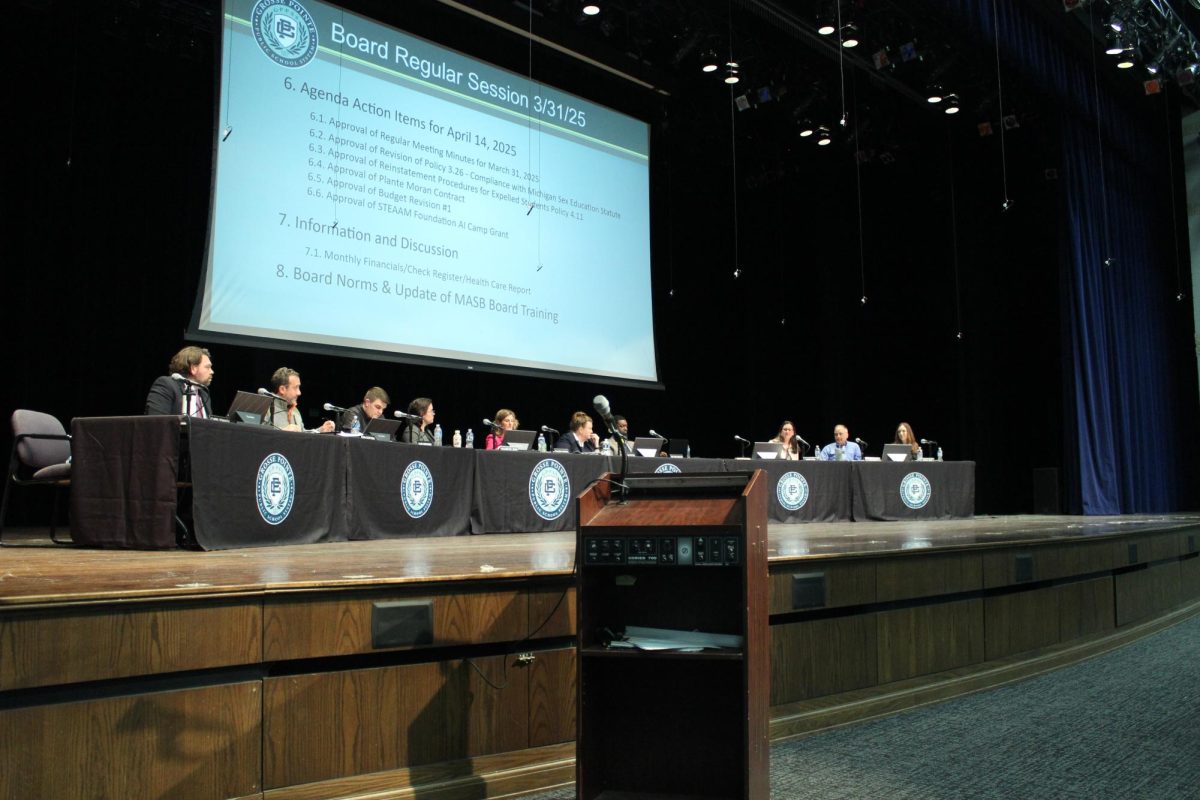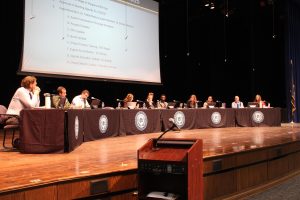New strategies for club fundraising
October 27, 2020
 The COVID-19 pandemic has brought virtually every part of life to a halt. In school, most clubs are meeting virtually. This can bring a host of problems. Being in a virtual format, the challenges have been even more difficult for clubs that rely on selling food items for fundraising.
The COVID-19 pandemic has brought virtually every part of life to a halt. In school, most clubs are meeting virtually. This can bring a host of problems. Being in a virtual format, the challenges have been even more difficult for clubs that rely on selling food items for fundraising.
Student activities director Melissa Petz said that clubs’ fundraising is based on student’s interest in the club and how they want to support communities outside of school-related to that club.
“Different clubs fundraise to support other activities or nonprofits,” Petz said.
“So the fundraisers support different philanthropic activities, which is great.”
Petz said she believes being in an online format may be hindering some club’s potential to meet and gain new members.
“Student interest is high, but clubs are getting off to a slow start just because of the lack of face-to-face interaction, camaraderie, and communication,” Petz said. “But they’re still getting off, and I think the more that students are collaborating online, the more club participation will increase. When we are able to be face-to-face, communicate, and be together a little bit more often, I think fundraising will build momentum and start happening.”
Colleen Morisette ’21 is the president of South 4 Life club. She said that the biggest fundraisers the club puts on are not able to happen this year due to COVID-19
“One of the biggest fundraisers that we usually do is a bake sale at the local churches,” Morisette said. “People are COVID conscious (now) and wouldn’t want to be interested in buying baked goods. We don’t want to make people feel uncomfortable by pushing them to have to buy things to support our club. So in a sense, we haven’t been able to fundraise at all this year.”
Morisette said that despite these challenges, the club is adapting and trying to find new ways to raise money for the charities they donate to.
“We are planning on customizing rubber band bracelets and stickers and selling them once school opens again and also possibly selling them at churches,” Morisette said.
Morisette said gaining new members and meeting are two of the biggest challenges the groups have faced.
“But I know personally that it’s really hard to meet,” Morisette said. “You have to go by word of mouth. You can’t have posters in the school that people (can learn about) a meeting coming up. It’s really hard to communicate that way. Especially if you don’t have everyone’s phone number. People don’t usually check their emails. So it’s hard to communicate with people who have been in the club in the past, and to do meetings over zoom is just not the same as it is to do meetings in person.”
President of the Lampworking club, Scarlett Draper ’21, said that starting a new club this year has been extremely difficult due to communication issues.
“We don’t have numbers (of students) at all,” Draper said. “Because obviously it’s new and no one’s gone there before. It’s hard to advertise new clubs, especially because you can’t put posters, and there aren’t daily announcements. That’s the biggest struggle. There are no daily announcements. I also don’t feel like people actually read their Schoology messages.”
Morisette said that she aims to start fundraising as soon as possible.
“Once school starts, and we’re in person, we want to get things rolling. We want to hit the ground running,” Morisette said.
Draper said that she is hopeful for the future of her club, especially with the help of advisor Shelly Rothenbuhler.
“For lampworking, Mrs. Rothenbuhler has been really communicative, especially since she has the Science Olympiad already,” Draper said. “So she knows how it works. And we’re trying to get it started inside the school this year because it’s a new club.”
Petz said she believes that the students at South can overcome their challenges to help make their meetings successful this year.
“I think our students are very intuitive and very creative in their approach and because our clubs are very student-centric, meetings are focused on students, developed for students and by students, so the ball is really in their court,” Petz said. “They really are able to meet creatively whether that’s a walking tour for the interior design group, (playing) ping pong outside or utilizing all the wonderful tents that we have available. Talents that we have the privilege of using are making things so much enjoyable.”













































































